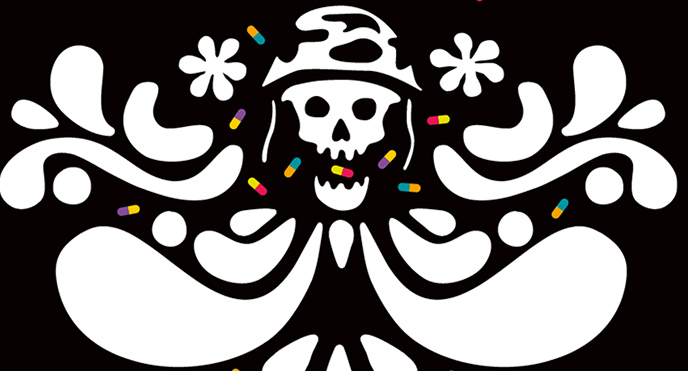“Hystopia is a thrilling novel—daring, immensely readable, and also unexpectedly funny,” Richard Ford writes of David Means’s debut novel, an excerpt of which we are delighted to share. A celebrated short story writer, Means brings his “dazzling gifts” to bear on the shadowed legacy of the Vietnam War, confronting the chaotic interplay of memory, violence, and trauma, and considering the power of narrative to alternately confront and conceal the unwelcome truths that haunt our personal and national histories. Below is an excerpt from the novel-within-a-novel by the Vietnam veteran Eugene Allen that forms the core of Hystopia.
opens in a new window |
April’s the cruelest month, they say, but I wouldn’t go that far. At least not yet. I’m going to do my best to make it the cruelest, she heard him say, and then she slipped into darkness and woke, hours later, to the murmur of the engine, the power thrumming under the hood, the hood ornament far out, pointing the way. He had gone in and taken her out of the post-treatment Grid, slipping in, using his words and drugs. His hand was on her leg. Fingers spread. Above everything his talk, his voice ragged and deep, and then as she came up and out of it, his voice and radio static were all she had.
Something was close behind, a spiral of police sirens, the hospital’s clean simplicity, the sedation of the treatment, pre and post, that stayed with her when it was over, and she had to command herself to open her eyes and to look out the windows at the devouring slip of the road into itself …
Groggy, she found her mouth and made it speak, and she was telling him, Find the Ann Arbor channel, the one from the university, Stooges all the time.
Stooges all the time, he muttered.
Then he began coughing and clearing his throat until he had something to spit, and he told her his throat was sore from screaming in Grand Rapids.
It had been a confusing couple of hours before they’d split that scene. The houses had been old, once dignified and fine, now slipping into decrepitude, uncomfortable beneath the trees arching over the wide streets. The trees were tired of shading structures of grandeur, optimistically huge Victorians. Slate shingles gone, hauled away by the looters after the riots.
Shaky had been asleep when they entered his bedroom, treading softly. Rake put the gun to his forehead and told him what he had to give them and how he was to do it and with what kind of movement, slowly, and how much shit he was in, deep, deep unbelievable shit, and Shaky did what they ordered him to do, but when he was doing it he stumbled or made a quick move. He was a tall dark man with knobby knees. One of the tallest motherfuckers you’re gonna see in the Middle West, Rake said.
Rake shot him point-blank, producing a spongy, wet sound, and an outbound spew of bone and blood hit the wall, making another sound that she heard and reheard and heard again.
That’s that, Rake said, kicking the body.
Then they ransacked the house, pulling drawers, spilling underwear, unfurling panties, frilly things that she held for a moment and dropped to the floor.
The feel of silk was still on her fingertips. She could still see the look in his eyes as he stared at the gun. The black barrel in the black pupil.
You’re gonna come out of it, the look said. You’re gonna survive this. I’m dead but you’re going to live. I’m just one more in the wrong place at the wrong time. One more who wakes up into a nightmare. I’m not going to plead with you too hard, no girl, but I’m gonna give you this last little glance to carry with you when you go, the look said before the gun took it away.
In the kitchen he removed a loaf of Wonder from the bread box, a glass bottle of milk with a paper cap, and some cheese, and then they headed off into the morning light.
I’m afraid we didn’t leave a single print, he said. We’re on the lam. That’s part of the deal. We’ve got to mix it up. Sometimes I leave prints, other times I don’t. Got to give the Psych Corps something to think about, got to leave some tracks they can obsessively follow. He talked and talked as they drove the Grand Rapids streets, turning now and then to make sure she was listening or at least awake, poking her with his long fingers, gripping her thigh.
David Means was born and raised in Michigan. He is the author of four collections of stories, including The Spot; Assorted Fire Events, which won the Los Angeles Times Book Prize for fiction; and The Secret Goldfish, which was short-listed for the Frank O’Connor International Short Story Prize. His work has appeared in The New Yorker, Harper’s Magazine, Zoetrope, The Best American Short Stories, The O. Henry Prize Stories, and numerous other publications. Hystopia is his first novel. He lives in Nyack, New York, and teaches at Vassar College.
YOU MIGHT ALSO LIKE:
Guillermo Erades on True Stories as Fiction
Rowan Ricardo Phillips on the Notions of Innovation and Influence
The Writer’s Privileged Addiction

